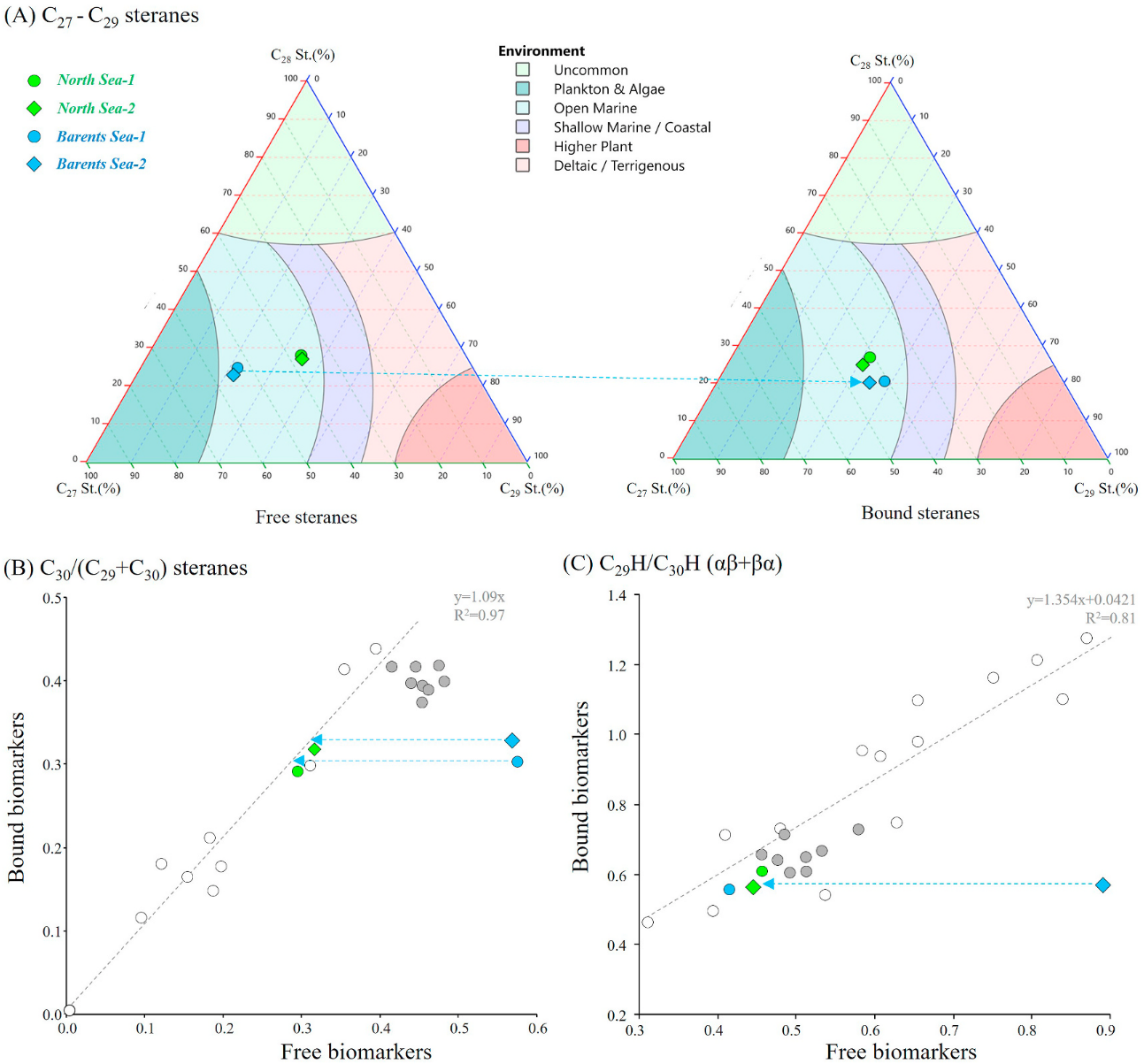In oil and gas systems, biodegradation can cause irreversible changes in the chemical composition of petroleum molecules and biomarkers through "selective destruction", thus hindering the determination and evaluation of the origin and maturity of crude oil. Bound biomarkers are those that are covalently bonded to kerogen or asphaltenes. Although they cannot be extracted by conventional solvent extraction, they can be released by hydropyrolysis or chemical degradation. The bound biomarkers are protected by the surrounding macromolecular compounds and are expected to provide original biological information that cannot be provided by conventional biomarkers affected by degradation.
In recent years, Professor Shengyu Yang from China University of Petroleum (East China) has developed microscale sealed vessel catalytic hydrogenation (MSSV-Hy) technology, and has carried out systematic studies of boound biomarkers for different types of hydrocarbon source rocks and reservoir asphaltenes in many international sites, which has confirmed the reliability and practicability of this technique. Recently, Prof. Yang, in collaboration with several European research institutes and oil companies, analyzed the free and bound biomarkers of oil samples from the North Sea and the Barents Sea that have been subjected to different degrees of degradation. These results show that the representative indicators of hopanes and steranes in the bound biomarkers, which are indicative of the sedimentary environment and the original source of matter, have not been significantly affected by biodegradation (Fig. 1), which can provide key molecular structural information for degraded crudes, and provide new research ideas and technical means for the research of the process and mechanism of hydrocarbon reservoir formation.

Fig.1 Comparisons of sterane between free and bound biomarkers parameters from Nordic oil samples
The research results were recently published as a short article in Marine and Petroleum Geology, an internationally recognized journal in the field of oil and gas geology. The first and corresponding author of the paper is Prof. Yang Shengyu, School of Geoscience and Technology, China University of Petroleum (East China). Collaborators include GEOS4 (Brian Horsfield), German Research Centre for Geosciences GFZ (Kai Mangelsdorf), Aker BP ASA, Norway (Rolando di Primio, Joachim Rinna, and Alexander Hartwig), Repsol Exploración S.A, Spain ( Antonio Martín-Monge and Rafael Antonio Tocco), and Total S.A. , France (Rouven Elias).
CITATION:Shengyu Yang* , Brian Horsfield , Kai Mangelsdorf , Rolando di Primio , Joachim Rinna , Alexander Hartwig , Antonio Martín-Monge , Rafael Antonio Tocco , Rouven Elias , 2024 , Pristine biomarker compositions recovered from biodegraded oil samples using MSSV-Hy. Marine and Petroleum Geology, https://doi.org/10.1016/j.marpetgeo.2024.106713

